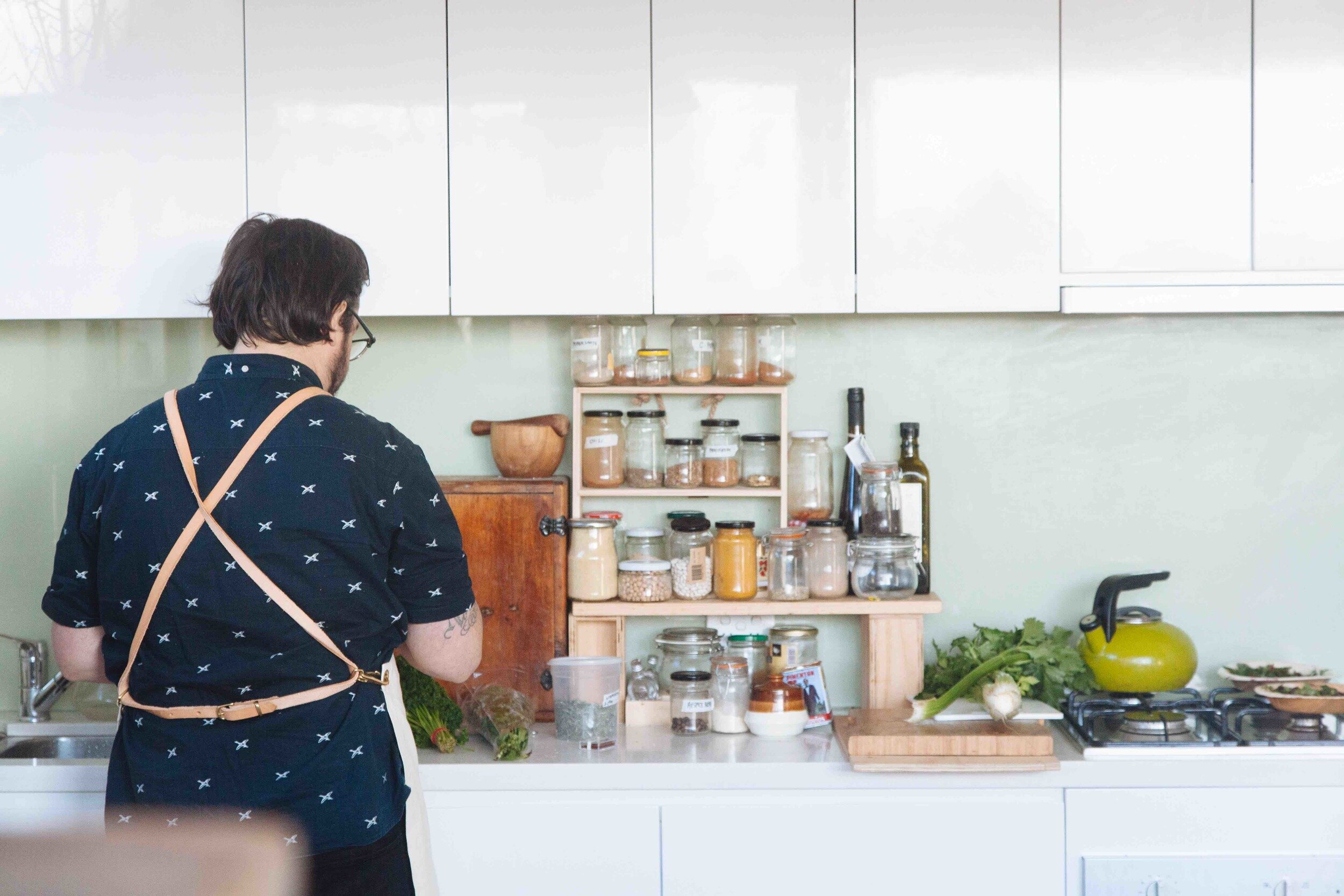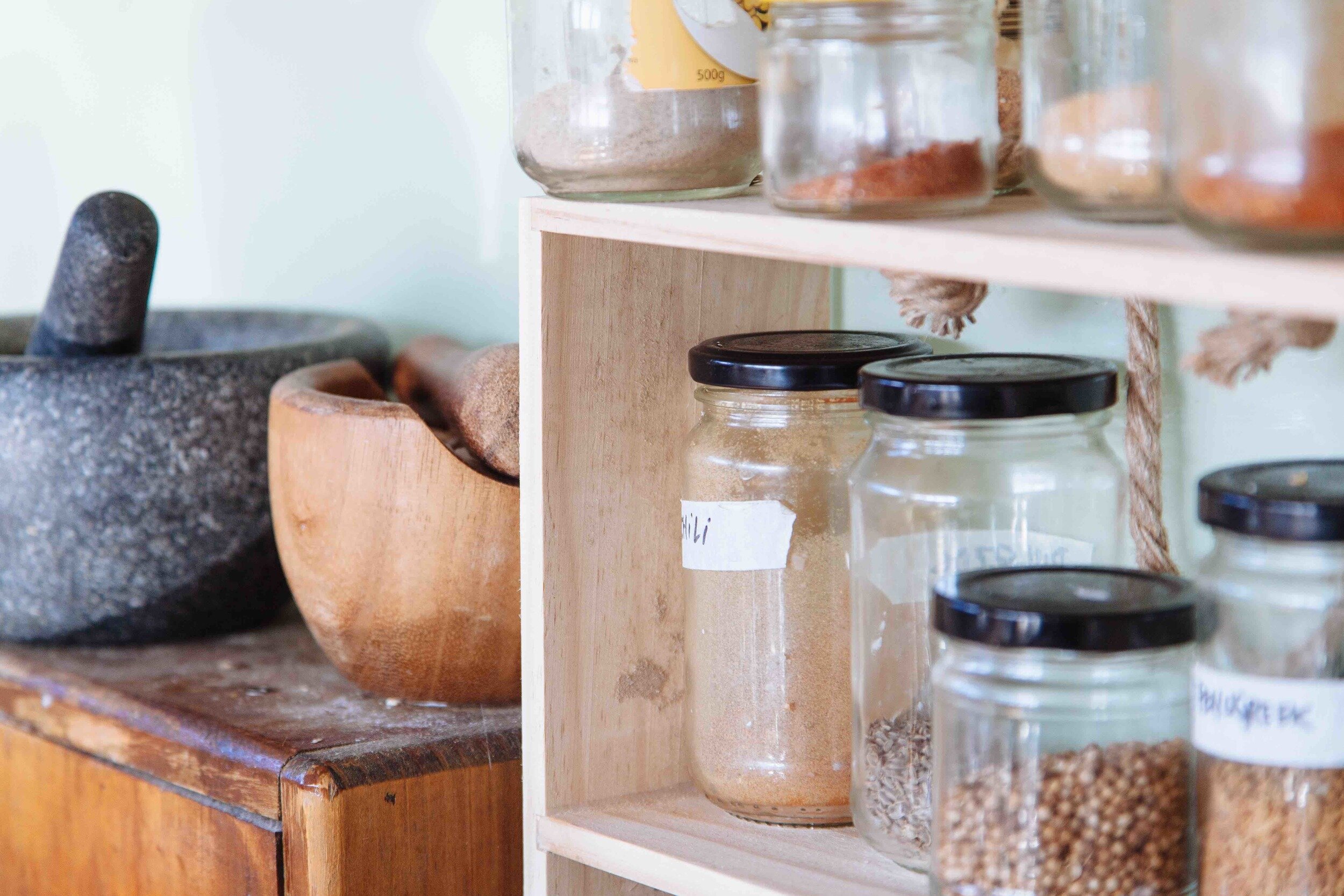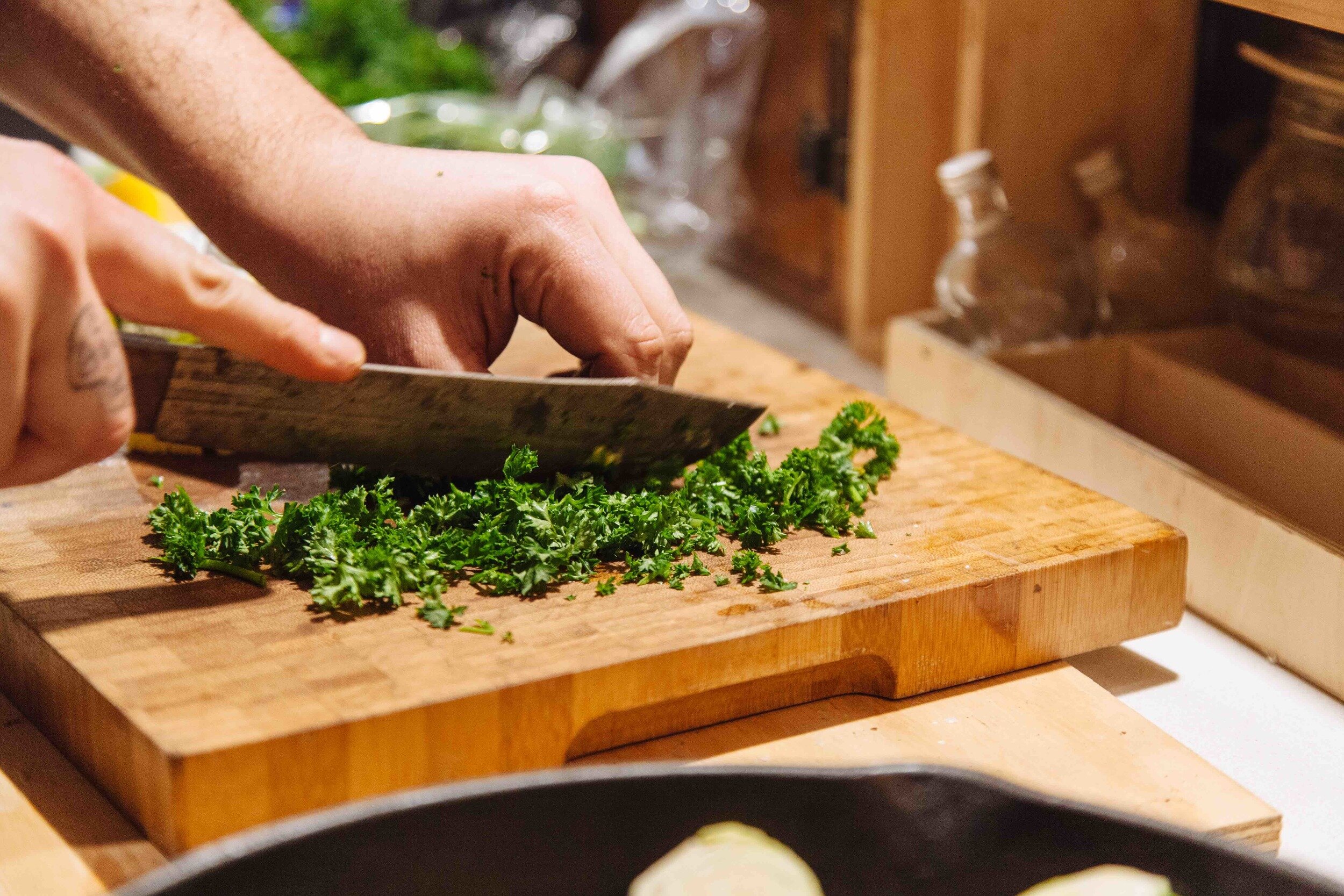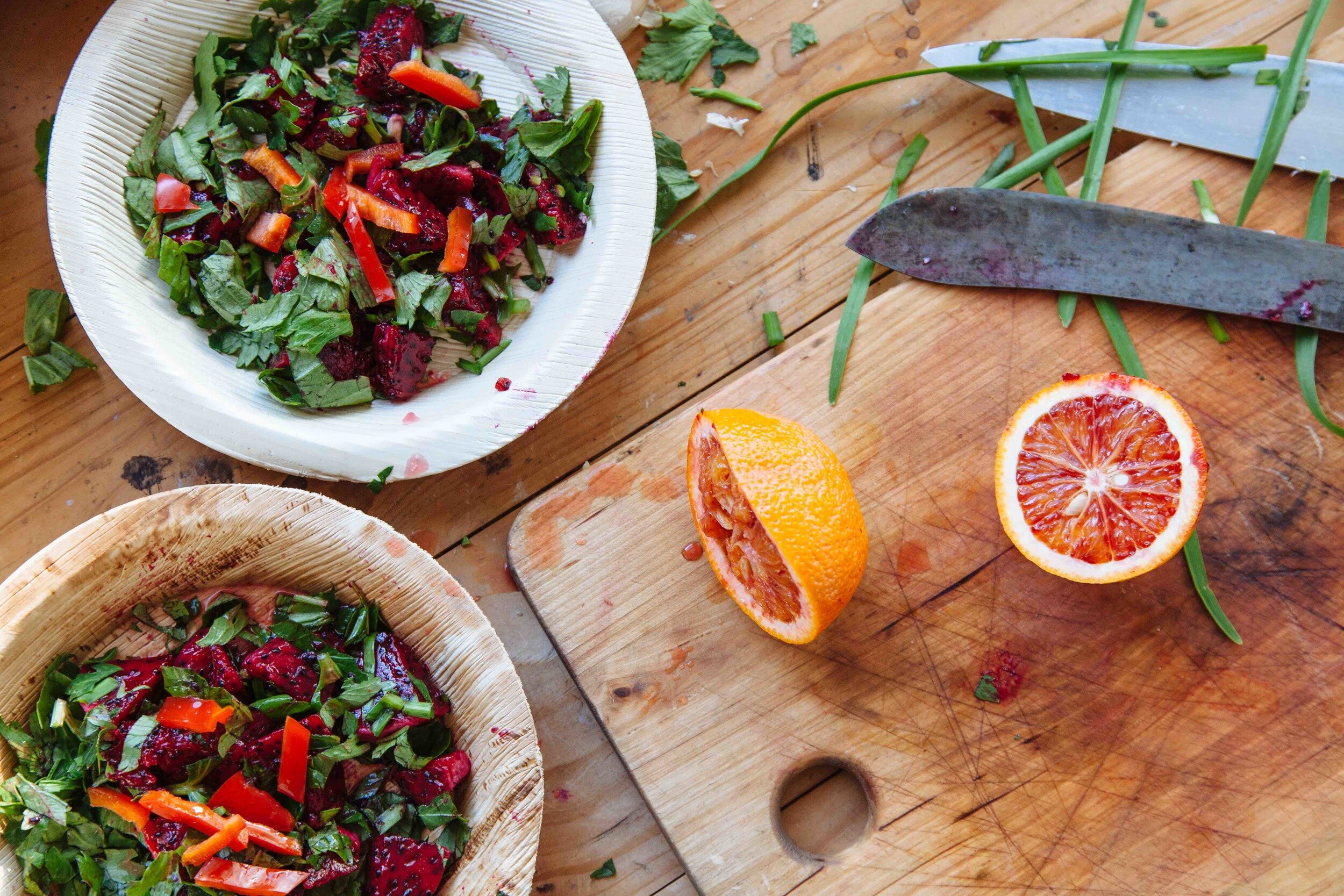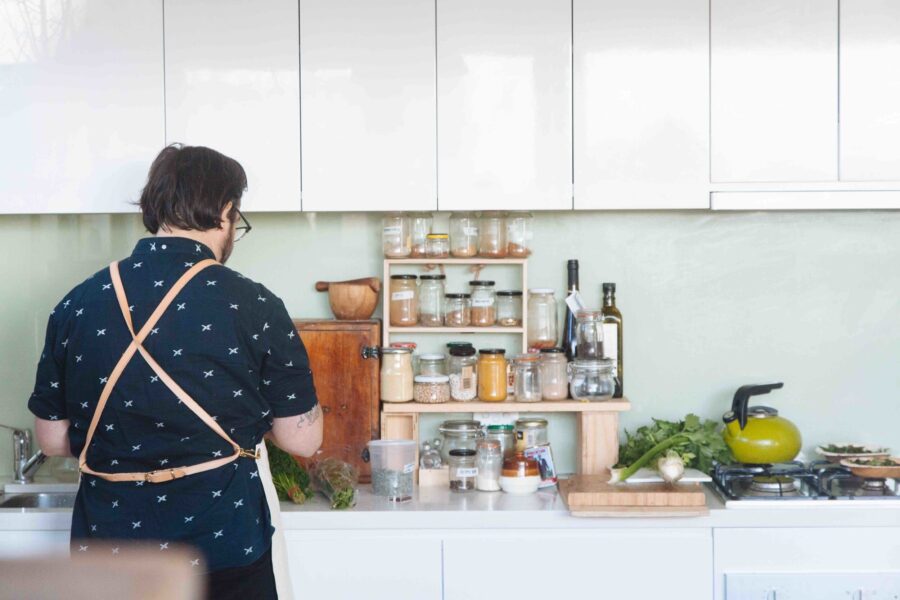
Conscious Living 101: 5 Steps To A More Conscious Kitchen
As we start learning about conscious living and ethical production, it doesn’t take long to realize that everything is connected.
We can’t pay attention to sweatshops and supply chains without stepping back and looking at the entire system. Studies increasingly show that environmental change is more likely to negatively affect those who are already in poverty. It increases disease, decreases available resources, and in turn increases the risk of those people being trafficked and/or ending up in sweatshops and other dangerous working conditions. Of course, this isn’t even to mention the negative effects environmental change will have on all of us eventually, regardless of socioeconomic status, if we don’t start paying attention to our individual footprints.
So as responsible shoppers, we must pay attention to environmental change and the impact our choices have. Here are some easy ways that you can start decreasing your impact on mother earth today, starting with your eating habits!
1. Get packing!
Choosing to pack your lunch more often, as opposed to going through the drive through or ordering take out, is a good place to start. Think of all of the wasteful materials you encounter when you order takeout. Styrofoam sandwich boxes, plastic salad containers, paper bags and napkins, and plastic utensils. All of these things could easily be eliminated if we chose instead to make our lunch at home, using glass tupperware and reusable utensils. As always, start small. If you’re constantly on the go and this sounds like an impossible feat to you, commit to just one meal a week for now. Then next month, try two. Find little ways to work responsible eating into your routine, like bringing your own utensils even when you do order takeout. Get rid of the disposables in your kitchen one by one as you transition to reusables.
2. Ditch the plastic. For real this time.
You know those canvas grocery bags that have been sitting in your trunk just waiting to be used for the past year and a half? Now is the time to start actually using them! Plastic is one of the worst culprits of pollution, with bags and bottles constantly ending up in our waterways and only a small percentage of it actually getting recycled.
But don’t stop at grocery bags. Getting rid of Ziploc bags are another great way to ditch the plastic. Instead, buy reusable ones. (If you’re feeling crafty, you can even make your own.) And it’s also time to finally say no to plastic water bottles. At some point in time, you’ve probably been told that bottled water is safer or cleaner than tap water; but this just isn’t the case. In fact, there are actually fewer regulations governing bottled water than there are for tap water, and more studies are showing that bottled water just isn’t as good for us as we think. Additionally, our reliance on the bottled water industry can actually lead to tap water problems like what we saw in Flint this past year.
3. Eat less meat.
This might be a tough one for some of us. But environmental scientists have proven over and over again that livestock production is continually in the top two or three contributors to environmental damage. Things like deforestation, overuse of freshwater, and emission of greenhouse gases and other damaging chemicals into the air contribute to the widely accepted fact that the meat industry is a major contributor to climate change. This is not even to mention the deplorable and unethical conditions these animals are kept in during their life. If you can’t or don’t want to give up meat, the best thing you can do is find a local farmer who knows how to raise and kill animals humanely, lets them roam free, and does not feed them growth hormones. Second best is going to a natural foods store like Whole Foods and buying organic, grass fed meat.
5. Shop seasonal and local produce.
We are so used to being able to walk into a grocery store and buy any product we want, regardless of whether or not it’s in season. But what we don’t realize is that this habit actually fuels a great deal of human trafficking and modern day slavery. Florida tomatoes, for example, have been linked time and time again to slave labor and atrocious working conditions.
Buying local and seasonal produce whenever possible is a way to ensure the food you’re eating isn’t encouraging the slave trade in the produce industry. It’s also usually healthier for you too! Need help learning what foods are in season? These charts from CUESA are helpful, as is this guide from Sustainable Table to narrow down your search to your state. (Outside of the US?! Just Google it!) You can also download these apps to help you locate the farmers’ markets in your area. To learn more about trafficking in the food industry, watch the Food Chains documentary.
6. Start a compost bin.
Composting can greatly reduce the amount of waste that goes into our landfills. In fact, up to 30% of what ends up in landfills is organic and can (and should) be composted. That’s a lot of unnecessary waste! Composting isn’t only good for the environment in general, but it can be beneficial for your home as well. It can provide healthier soil for plants, reduce runoff, eliminate the need for synthetic fertilizers, protect plants from pests, and more.
And it doesn’t have to be difficult! Devices like the CompoKeeper make it easy for anyone to compost, even if you live in a big city and don’t have a yard. If you do have the time and space for it, however, you can build a larger, outdoor compost bin, which is still relatively easy to do! Need help with what can and can’t be composted? Elizabeth Stillwell of The Note Passer created a really great flowchart to help you know what goes in the trash, what goes in the recycling, and what goes in the compost bin.
Try not to get overwhelmed if you look at your food habits and find that they’re less than ethical. Remember that baby steps matter. Don’t try to tackle everything all at once. Instead, pick just one thing from this article to work on this week. Then, pick another next week until you find yourself with a sustainable kitchen!
Abigail is a contributor to The Good Trade and the founder and Editor-in-Chief of Freestate, a resource that makes it easier for consumers to shop and live ethically. She has a Bachelor’s degree in Psychology with experience in mental health, sales, marketing, and freelance writing. She is also the co-founder and managing partner of SoVo Solutions, a social media management company. She lives in Cincinnati, Ohio. You can say hi on social media @abigaildriscoll.
